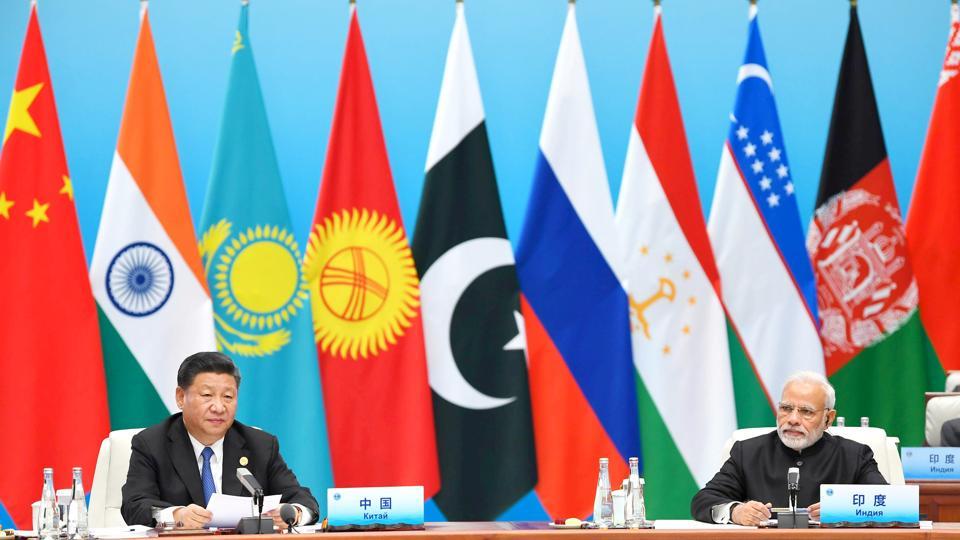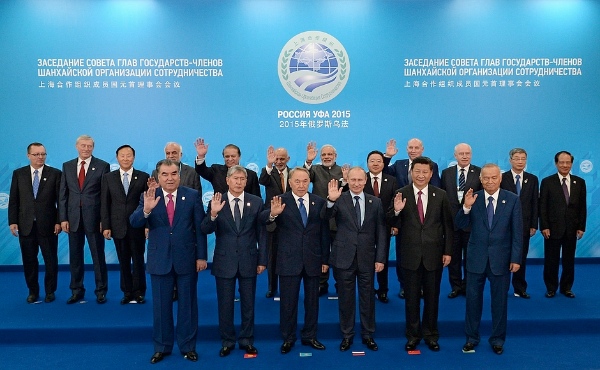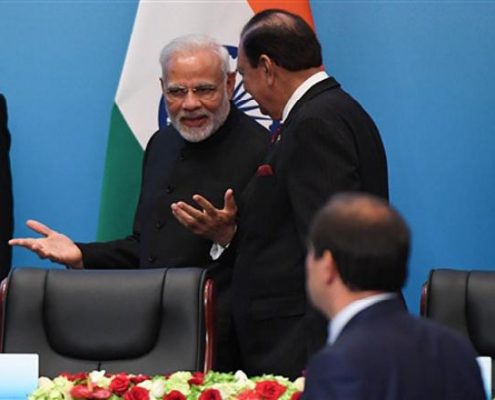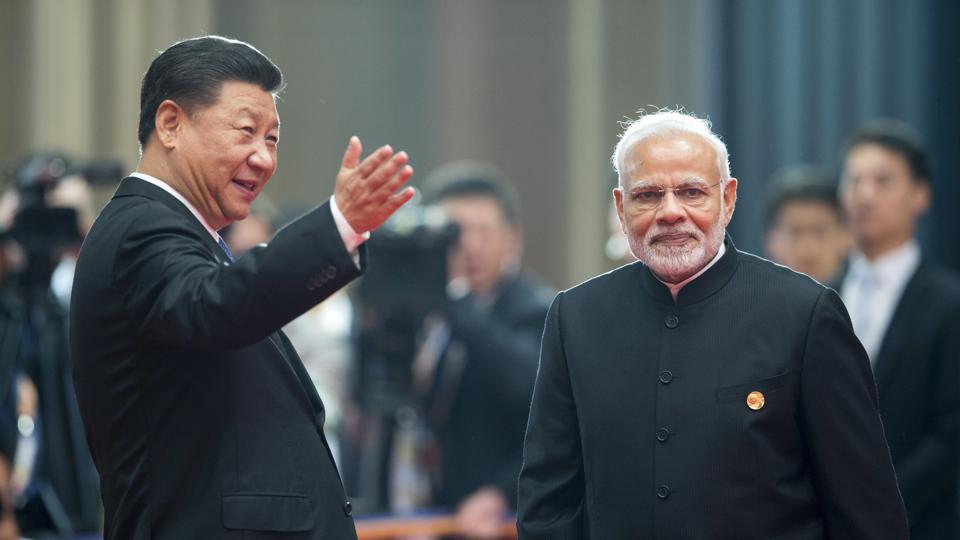
More than a year after boycotting the Belt and Road Forum in Beijing, India Sunday again refused to endorse the ambitious Chinese Belt and Road Initiative (BRI). New Delhi was the lone dissenting voice against the project in the joint declaration that was signed Sunday following the conclusion of the Shanghai Cooperation Organisation (SCO) summit in Qingdao, China.
This was a reiteration of the stated Indian position, which was articulated at the SCO Foreign Ministers meet in April. At the time, the SCO declaration had not named India as one of the supporters of the BRI.
Prime Minister Narendra Modi laid the ground for India’s opposition to the project during his plenary speech when he said that India welcomed connectivity projects that respected the sovereignty and territorial integrity of nations.
After the two-day SCO summit, the eight full members signed the Qingdao joint declaration but India was missing from the section that referred to the BRI. “The Republic of Kazakhstan, the Kyrgyz Republic, the Islamic Republic of Pakistan, the Russian Federation, the Republic of Tajikistan, and the Republic of Uzbekistan reaffirm their support for the ‘Belt and Road Initiative’ proposed by China and affirm that all parties should implement the ‘Belt and Road Initiative’ to promote the ‘Belt and Road’ initiative,” stated the declaration.

The BRI, proposed by Chinese President Xi Jinping in 2013, is aimed at building a trade and infrastructure network connecting Asia with Europe and Africa along ancient trade routes. India has staunchly opposed the project citing the China Pakistan Economic Corridor (CPEC) – an important part of the BRI – that goes through Pakistan-occupied Kashmir (PoK). Citing its opposition to the CPEC, India had skipped the Belt and Road Forum in May last year, which 29 state heads had attended.
“Connectivity in SCO region and in our neighbouring countries is a priority for India. We welcome such new connectivity projects that are inclusive, sustainable and transparent and which respect the sovereignty and territorial integrity of nations,” Modi said in his address during the plenary session of the SCO summit Sunday.
In the 17-page Qingdao declaration, the BRI was the only point in which the names of approving countries were individually mentioned rather than the term “member states”.
The Qingdao declaration that was signed by the member countries also seemed to address the concerns of both India and Pakistan in thefight against terrorism. The declaration was unequivocal in condemning all forms of terrorism but also added that interference in the domestic affairs of other states on the pretence of fighting terrorism and extremism was unacceptable.
“The Member States note that the interference in the domestic affairs of other states under the pretence of combating terrorism and extremism is unacceptable, as well as the use of terrorist, extremist and radical groups for one’s own purposes,” stated the declaration.
In his speech, Modi also mentioned Afghanistan and spoke of a common front against forces destabilising the nation. Indian efforts to help and start capacity building projects in Afghanistan has been taken kindly by Pakistan and the Taliban.
“The situation in Afghanistan is an unfortunate example of terrorism and extremism in our region. I hope that all parties will respect the sentiments with which President Ghani has taken courageous steps for peace. It is our responsibility that causes which threaten Afghan unity, sovereignty, integrity, diversity and democracy in the past will not be repeated,” he said, without mentioning Pakistan.

Modi did, however, exchange pleasantries with Pakistani President Mamnoon Hussain twice, during the plenary session and later at the concluding session when the two leaders shook hands.
Modi also coined another acronym SECURE, which he said would facilitate comprehensive security in the SCO region. “I believe there are six dimensions summed up in the English word secure. S stands for the security of citizens, E for economic development for all, C is for connecting the region, U is for uniting our people, R is for respect for sovereignty and territorial integrity and E is for environmental protection,” he said.
Referring to mutual cooperation and improving people to people contact, Modi said that the number of foreign visitors from SCO countries constituted only six per cent of India’s total tourists, which he believed could easily be doubled to 12 per cent. He said India soon planned to organise a food festival of cuisines of SCO countries as well as a shared Buddhist heritage exhibition in India.
Meanwhile, the other joint documents that were adopted by all the member countries included the joint prevention of radicalisation of youth, the programme for combating terrorism, separatism and extremism 2019 to 2021, MoUs within the SCO for MSMEs, trade facilitation, tourism, environment protection, prevention of abuse of narcotic and psychotropic drugs and an anti-drug strategy.
The PM also held bilateral meetings with the leaders of Kazakhstan and Kyrgyzstan.

Chinese President Xi Jinping who chaired the SCO meet said that while hegemony and power politics still persist in this world, there was a growing call for a more just and equitable international order which must be heeded.
“We should promote open and inclusive cooperation for win-win outcomes. We should reject self-centered, short-sighted and closed-door policies. We should uphold WTO rules and support the multilateral trading system so as to build an open world economy,” Xi said during the Plenary session.
He also said that China would provide RMB 30 billion ($4.7 billion) in loans under a framework formed by SCO countries.
This is India’s first participation in the summit as a full-time member of the organisation. India, along with Pakistan, became full-time members during the Astana summit in Kazakhstan in June 2017. The PM flew out of Beijing on Sunday afternoon concluding his two-day visit.
The declaration also showed its support for the Iranian nuclear deal. Iran is presently an observer member of the SCO. Iran’s President Hassan Rouhani who attended the meet had slammed US attempts to impose its own policies on others during his speech.
“The member states deem it important to consistently implement the Joint Comprehensive Plan of Action on the Iranian nuclear programme, and call for participants to strictly observe their obligations with a view to ensuring its full and efficient implementation and promoting peace and stability in the region and globally,” the declaration said.



